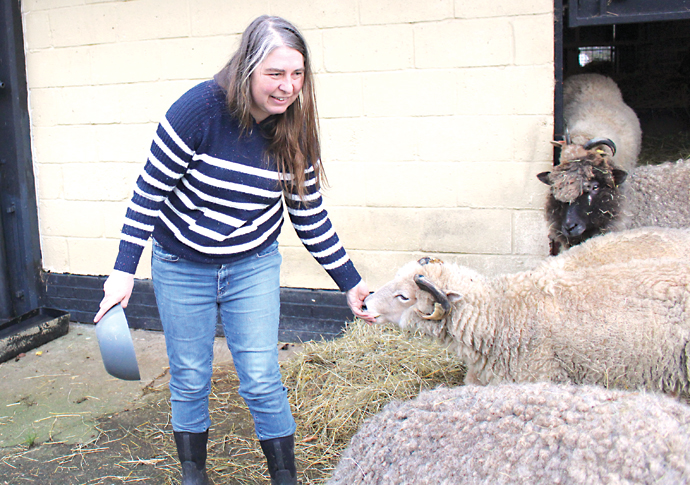City farm appeals for cash to keep it open
‘There’s always concern’ – on its 50th anniversary, Freightliners launches ‘50 Fabulous Fundraisers’
Friday, 5th January 2024 — By Izzy Rowley

Farm manager Liz McAlister at work at Freightliners
A CITY farm facing its 50th anniversary says it’s at risk of closure without an injection of cash.
Freightliners Farm in Highbury is launching a fundraising drive to save itself and preserve its environmental contribution. The city farm is home to pigs, sheep, goats, chickens, plus a number of native and non-native plants.
Liz McAlister, the farm’s manager who has worked there for 20 years, said, “We’re a small charity, so there’s always a concern that we’ll close to some extent.
“We tread a fine line – we’re extremely good value for money – which means, if things are a bit tight like with cost of living and cost of operations going up, and everything going up by huge amounts, it puts us in a very vulnerable position.
“In combination with that, we usually have a big grant from somewhere, but we haven’t got that in yet. We’re very tight.
“We’ve got a fundraising campaign which we’re just about to launch, which is ‘50 Fabulous Fundraisers’, so we want to try for our 50th anniversary to get 50 people to fundraise £1,000 each. That’s the aim.
“At the moment, we’re reliant on that. We need to raise £10,000 a month for the next four months. And we need that in addition to what we already know we’ll need. It usually costs £230,000 to run this place per year, but we predict it’ll be more.”
Ms McAlister says that the farm is an essential bridge between people and their environment.
“It’s about finding out about food production, how things grow, and what we need to do that. Then there’s the biodiversity aspect and the natural environment. Plus, the green unnatural environment – we grow a lot of ornamental plants as well.
“It’s also about that connection with green space, and doing things from the base level. A lot of people in the city, and everywhere now because we don’t have many people who are growing things and making things, we’re quite a long way from that, so having a chance to find out about what it takes, and to do things like harvesting things… knowing how it works, doing things with your hands, it’s therapeutic and it gives you a connection
“And, if we don’t have these things happening – if we don’t have people building houses, growing food, then the rest of our lives can’t happen, and we’re so disconnected from that, so I think it’s important that people have a chance to see that.”
Ms McAlister says the farm has already borne the brunt of the climate emergency, and has changed the kinds of plants it’s growing to adapt to a hotter climate.
“Last year was fine because it was wet. But, the year before we lost quite a lot of plants because they were getting a combination of being scorched and burnt out from the top and we couldn’t keep them watered enough so they could come back from that, so we lost a few.
“We’d already started growing a lot of things, partly for interest, that are Mediterranean and tropical. There’s also interest and connection with people from different communities because we grow things like banana plants and ginger plants, so people see them and might recognise them as something that grows where they’re from or where their family is from.”